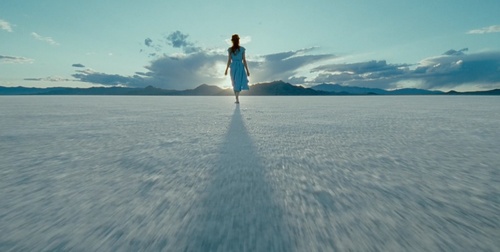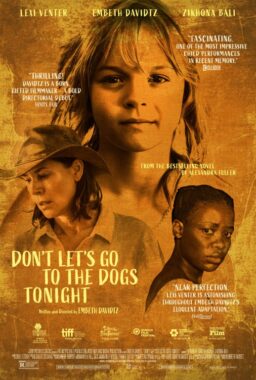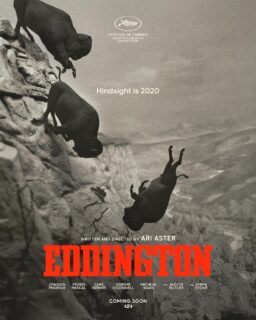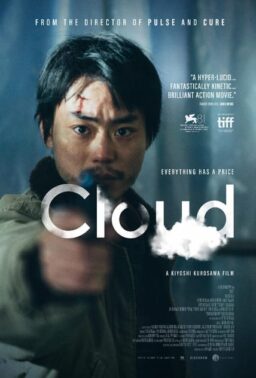I am faced once again with the task of voting in Sight & Sound magazine’s famous poll to determine the greatest films of all time. Apart from my annual year’s best lists, this is the only list I vote in. It is a challenge. After voting in 1972, 1982 and 1992, I came up with these ten titles in 2002:
“Aguirre, Wrath of God” (Herzog), “Apocalypse Now” (Coppola), “Citizen Kane” (Welles), “Dekalog” (Kieslowski), “La Dolce Vita” (Fellini), “The General” (1927) (Keaton), “Raging Bull” (Scorsese), “2001: A Space Odyssey” (Kubrick), “Tokyo Story” (Ozu), “Vertigo” (Hitchcock).
To add a title, I must remove one. Which film can I do without? Not a single one. One of my shifts last time was to replace Hitchcock’s “Notorious” (1946) with “Vertigo,” because after going through both a shot at a time during various campus sessions, I decided that “Vertigo” was, after all, the better of two nearly perfect films.
The other titles I consider the best work by their directors. I expect Coppola’s “The Godfather” to be on this year’s S&S list again, and it may even move higher. It is a great film. But “Apocalypse Now” is a film which still causes real, not figurative, chills to run along my spine, and it is certainly the bravest and most ambitious fruit of Coppola’s genius.
I’ve written before how its critical reputation was harmed after he made an unwise statement at the Cannes premiere about being dissatisfied with the ending. I was there the night he said it, on a yacht while chatting with six or seven film critics. It was clear the film was a triumph. It was clear he was referring to the fact that the film’s 70mm version was intended to play without end titles, which would be supplied by a brochure. The 35mm ending was as we see it now. That’s all he meant. An urban legend has somehow perpetuated itself that he was referring to the entire Kurtz segment.
More critics would say “8 1/2” was Fellini’s greatest work, and there is support for “Amarcord” and “La Strada.” Sometimes the way you consider a film depends on when and why you saw it, and what it meant to you at that time. “La Dolce Vita” has become a touchstone in my life: A film about a kind of life I dreamed of living, then a film about the life I was living, the about my escape from that life. Now, half a century after its release, it is about the arc of my life, and its closing scene is an eerie reflection of my wordlessness and difficulty in communicating. I still yearn and dream, but it is so hard for me to communicate that–not literally, but figuratively. So the Fellini stays.
So does the Keaton. There must be a silent film, and I consider “The General” to be his best. “Aguirre” is the most evocative expression of Herzog’s genius, and I admire it even more after watching him go through it a shot at a time with Ramin Bahrani a few years ago at Boulder. (Having agreed to do one of his films, it was the one he chose.)
“Citizen Kane” speaks for itself. “2001: A Space Odyssey” is likewise a stand-along monument, a great visionary leap, unsurpassed in its vision of man and the universe. It was a statement that came at a time which now looks something like the peak of humanity’s technological optimism. Many would choose “Taxi Driver” as Scorsese’s greatest film, but I believe “Raging Bull” is his best and most personal, a film he says in some ways saved his life. It is the greatest cinematic expression of the torture of jealousy–his “Othello.”
There must be an Ozu. It could be one of several. All of his films are universal. The older I grow and the more I observe how age affects our relationships, the more I think “Tokyo Story” has to teach us. Kurosawa’s “Ikiru” has as much to say, but in the rigid economy of the Sight & Sound limitations, impossible choices are forced.
That leaves only one title to be replaced: “Dekalog,” by Kieslowski. This is an easy decision, because the magazine’s new rules insist that if you vote for, say, a pair of films (“The Godfather” and “The Godfather Two”), or a trilogy (Ray’s “Apu” trilogy or Kieslowski’s “Blue,” “White” and “Red” trilogy), each film counts as a separate title. Therefore, since “Dekalog” consists of ten films, averaging an hour long, it would take all ten places on my list.
At one point in pondering this list, here’s what I thought I would do: I would simply start all over with ten new films. Once any film has ever appeared on my S&S list, I consider it canonized. “Notorious” or “The Gates of Heaven,” for example, are still two of the ten best films of all time, no matter what a subsequent list says.
I decided not to do that–trash the 2002 list and start again. It was too much like a stunt. Lists are ridiculous, but if you’re going to vote, you have to play the game. Besides, the thought of starting with a blank page and a list of all the films ever made fills me with despair.
So there must be one new film.
The two candidates, for me, are Charlie Kaufman’s “Synecdoche, New York” (2008) and Terrence Malick’s “The Tree of Life” (2011). Like the Herzog, the Kubrick and the Coppola, they are films of almost foolhardy ambition. Like many of the films on my list, they were directed by the artist who wrote them. Like several of them, it attempts no less than to tell the story of an entire life,
In “Synecdoche,” Kaufman does this with one of the most audacious sets ever constructed: An ever-expanding series of boxes or compartments within which the protagonist attempts to deal with the categories of his life. The film has the insight that we all deal with life in separate segments, defined by choice or compulsion, desire or fear, past or present. It is no less than a film about life.
In “The Tree of Life,” Malick boldly begins with the Big Bang and ends in an unspecified state of attenuated consciousness after death. The central section is the story of birth and raising a family.
I could choose either film. I will choose “The Tree of Life” because it is more affirmative and hopeful. I realize that isn’t a defensible reasons for choosing one film over the other, but it is my reason, and making this list is essentially impossible, anyway.
Apart from any other motive for putting a movie title on a list like this, there is always the motive of propaganda: Critics add a title hoping to draw attention to it, and encourage others to see it. For 2012, I suppose this is my propaganda title. I believe it’s an important film, and will only increase in stature over the years. “Aguirre, Wrath of God” (Herzog), “Apocalypse Now” (Coppola), “Citizen Kane” (Welles), “La Dolce Vita” (Fellini), “The General” (Keaton), “Raging Bull” (Scorsese), “2001: A Space Odyssey” (Kubrick), “Tokyo Story” (Ozu), “The Tree of Life” (Malick), “Vertigo” (Hitchcock).












